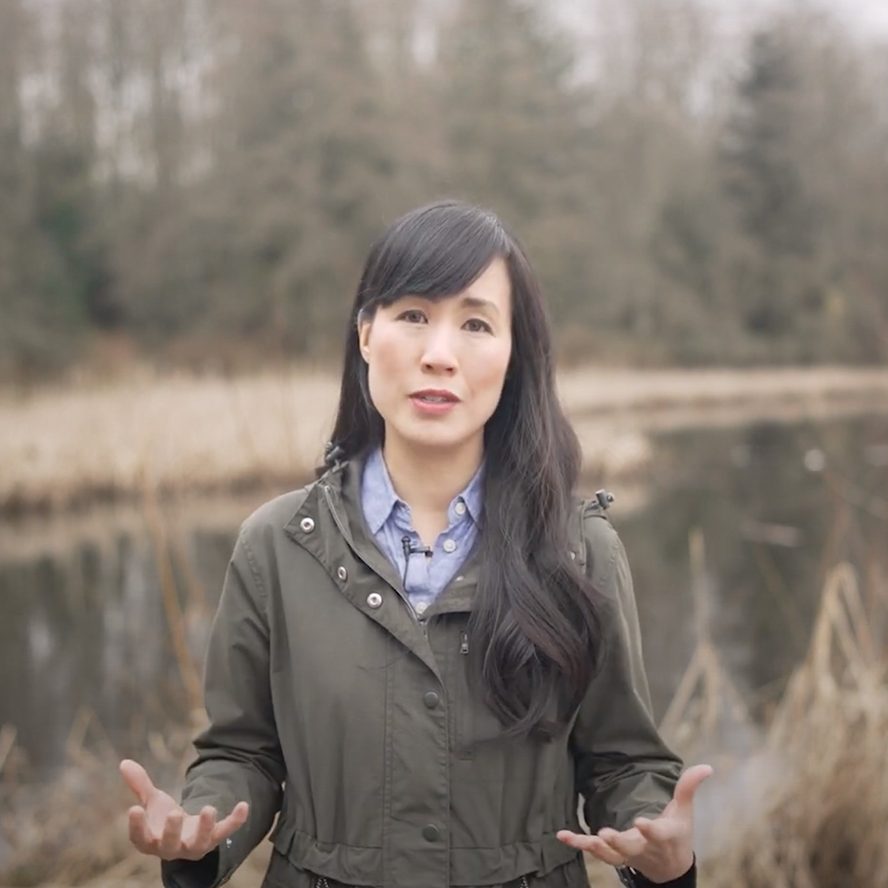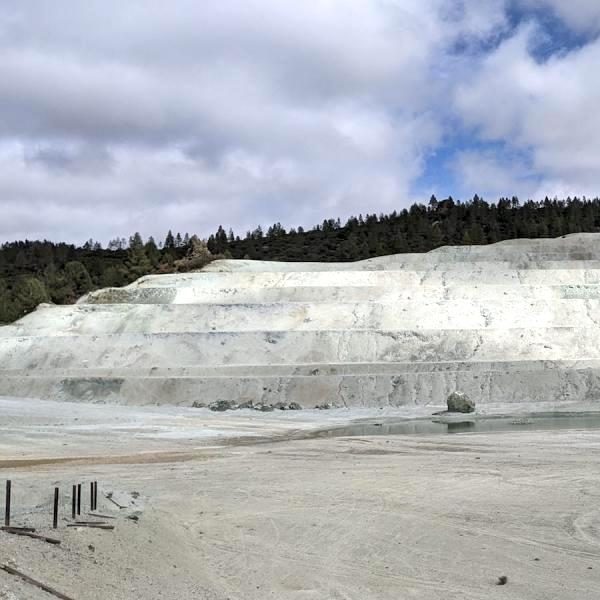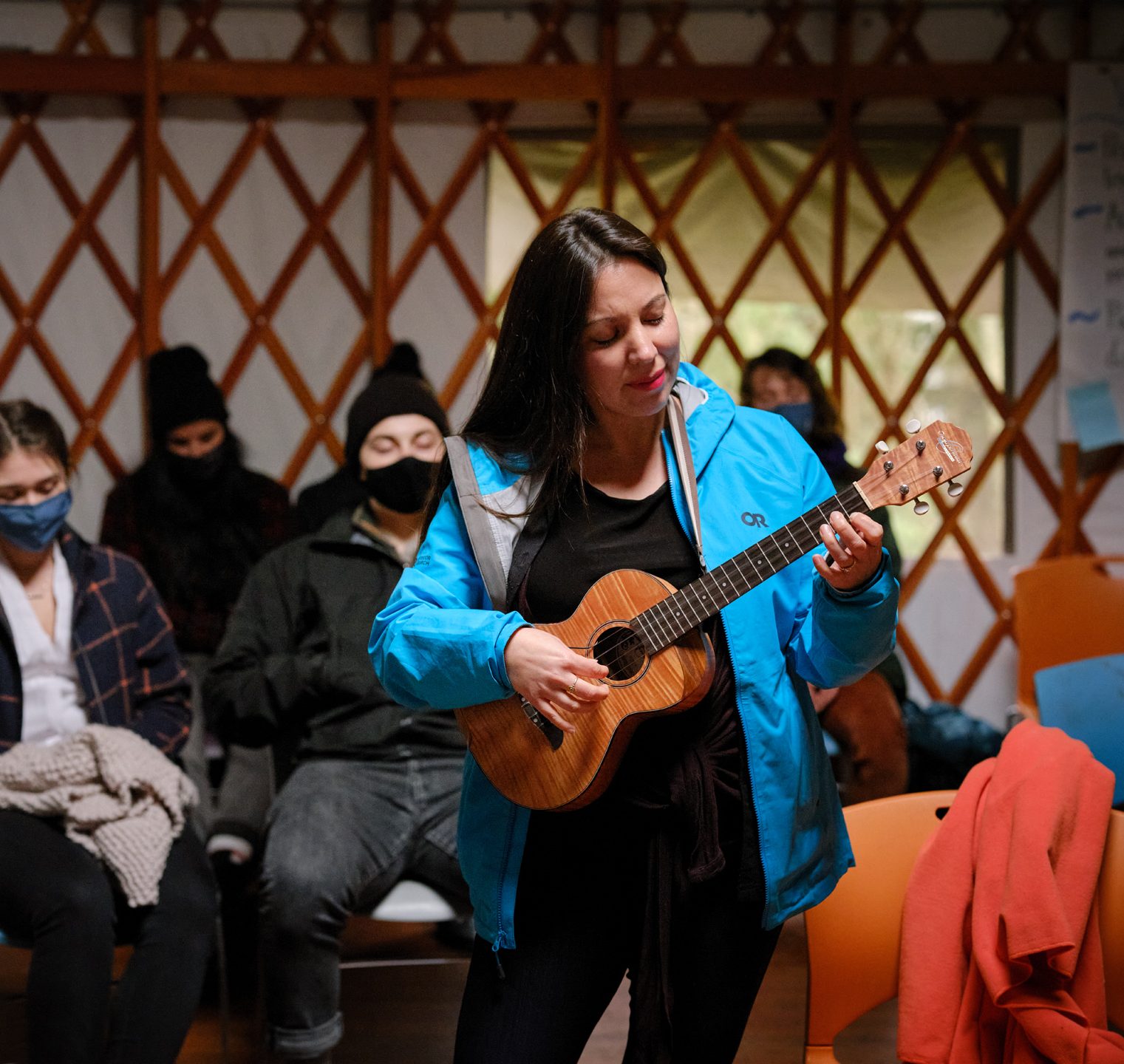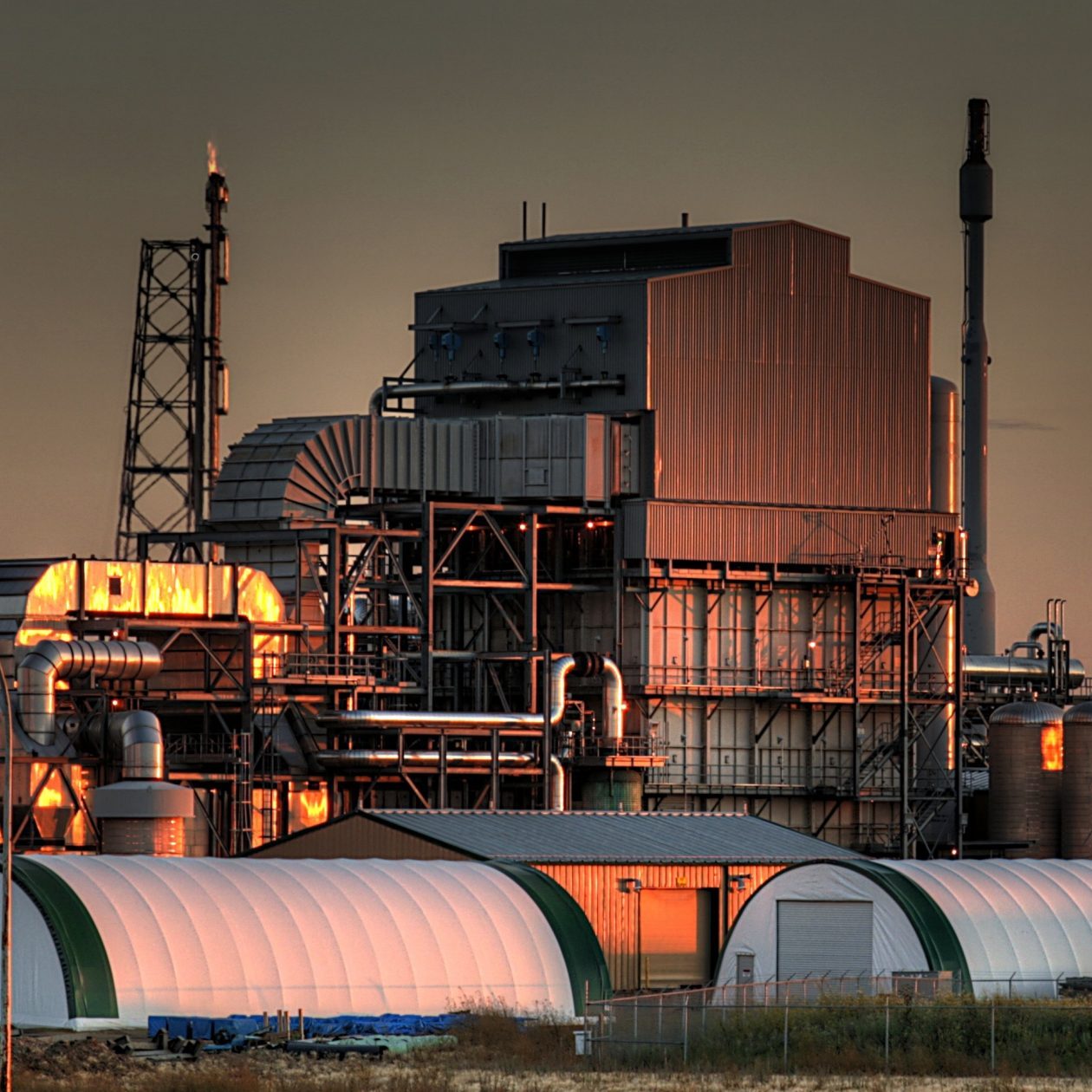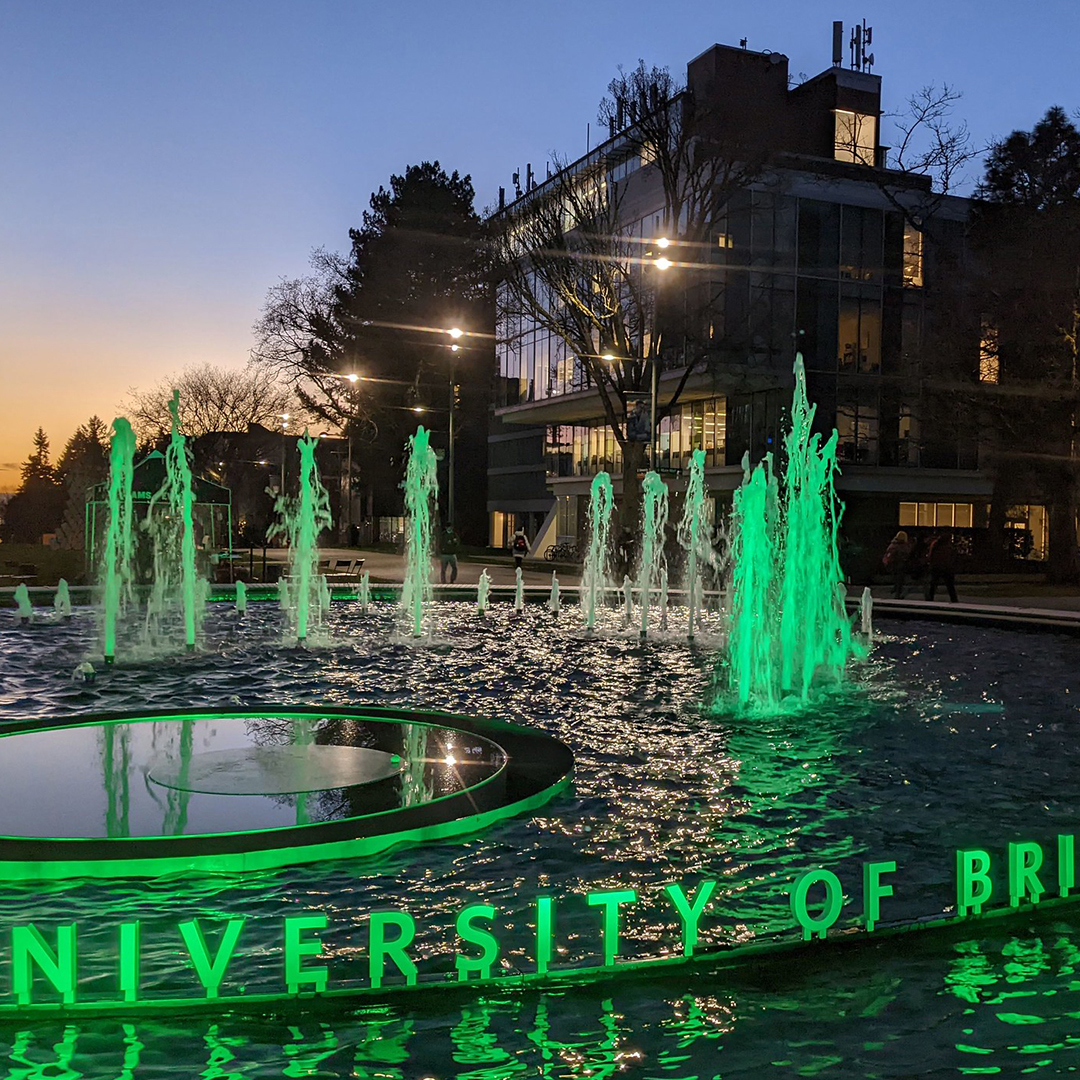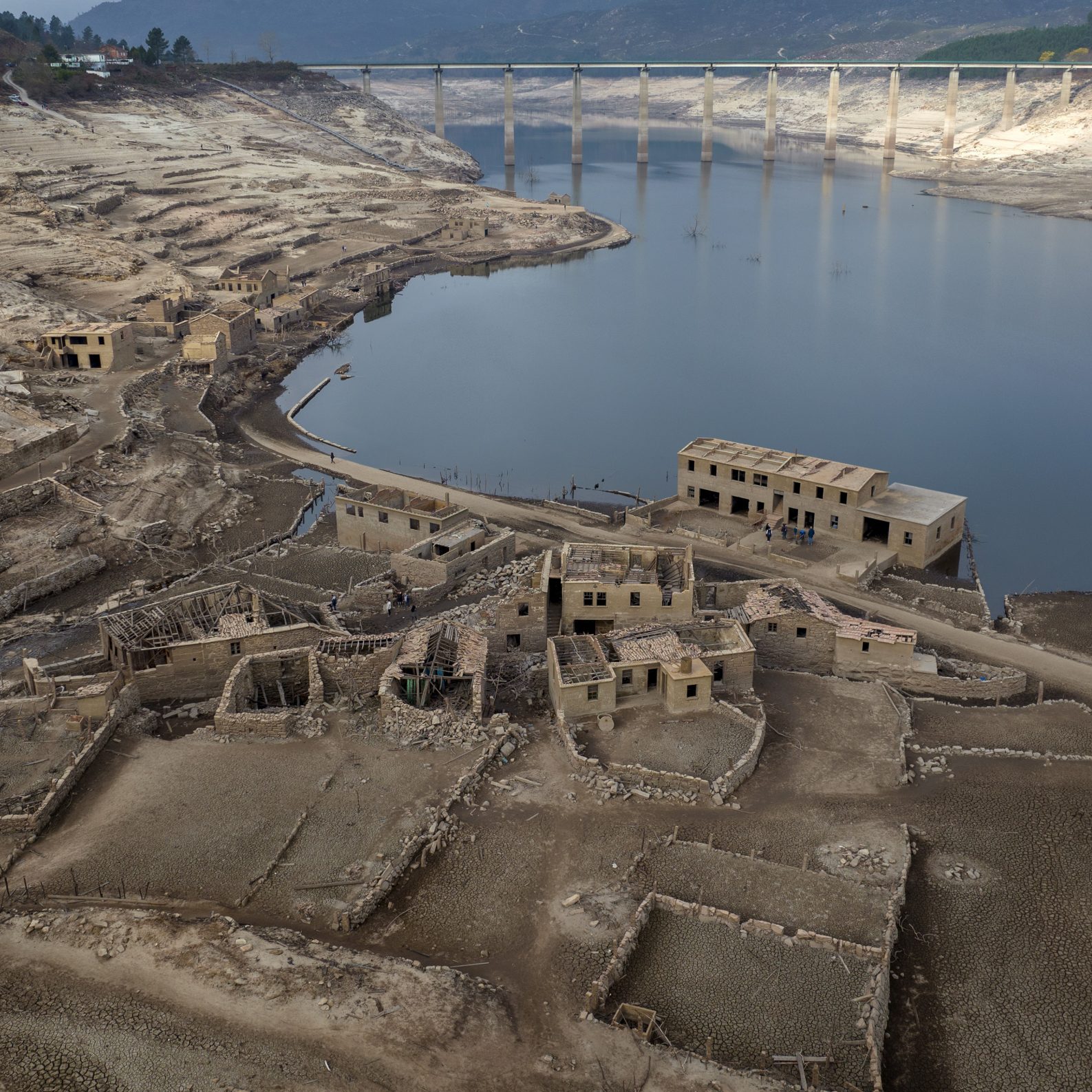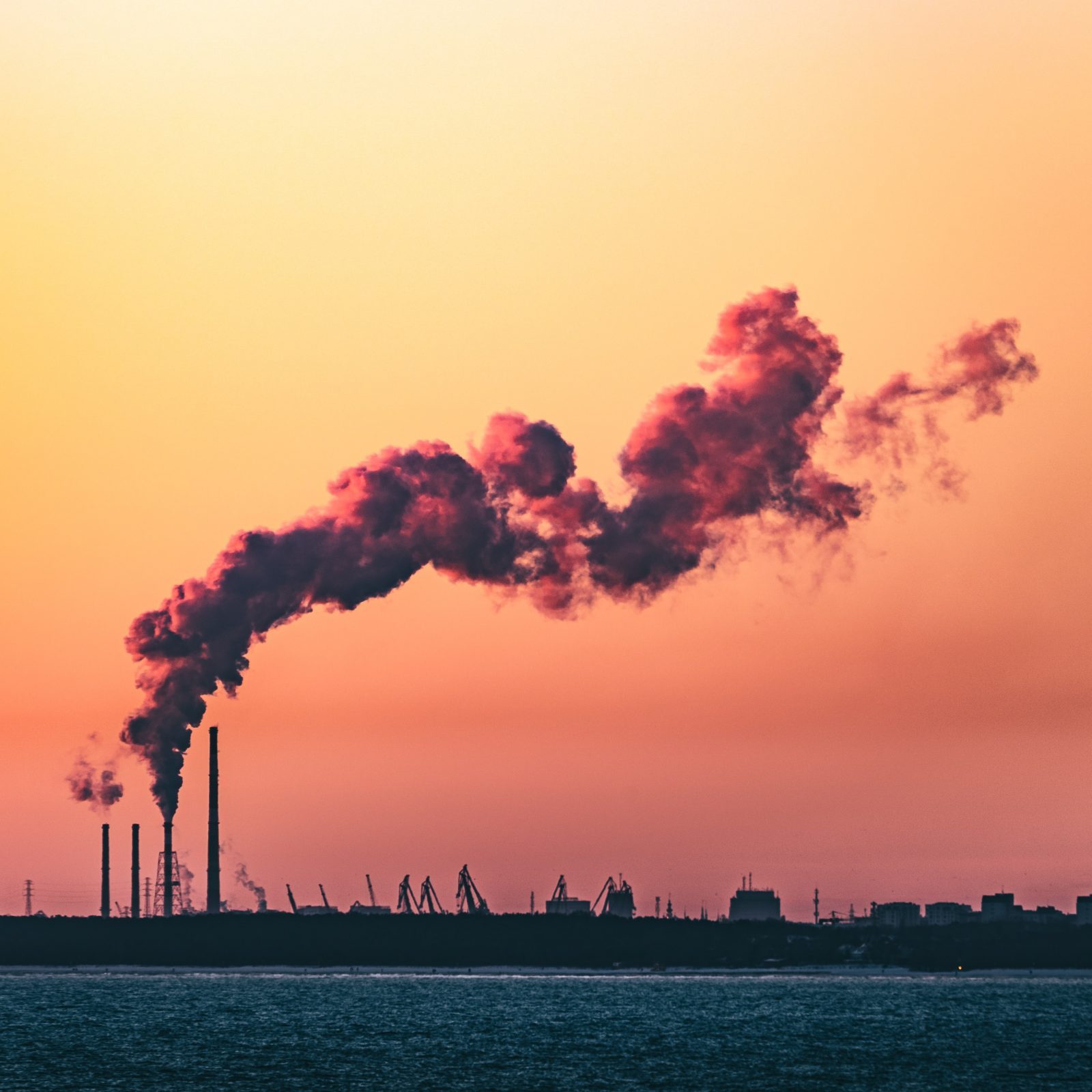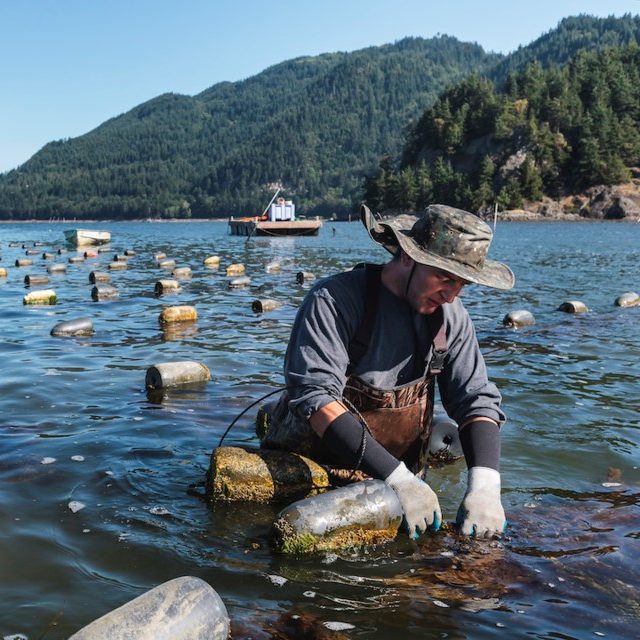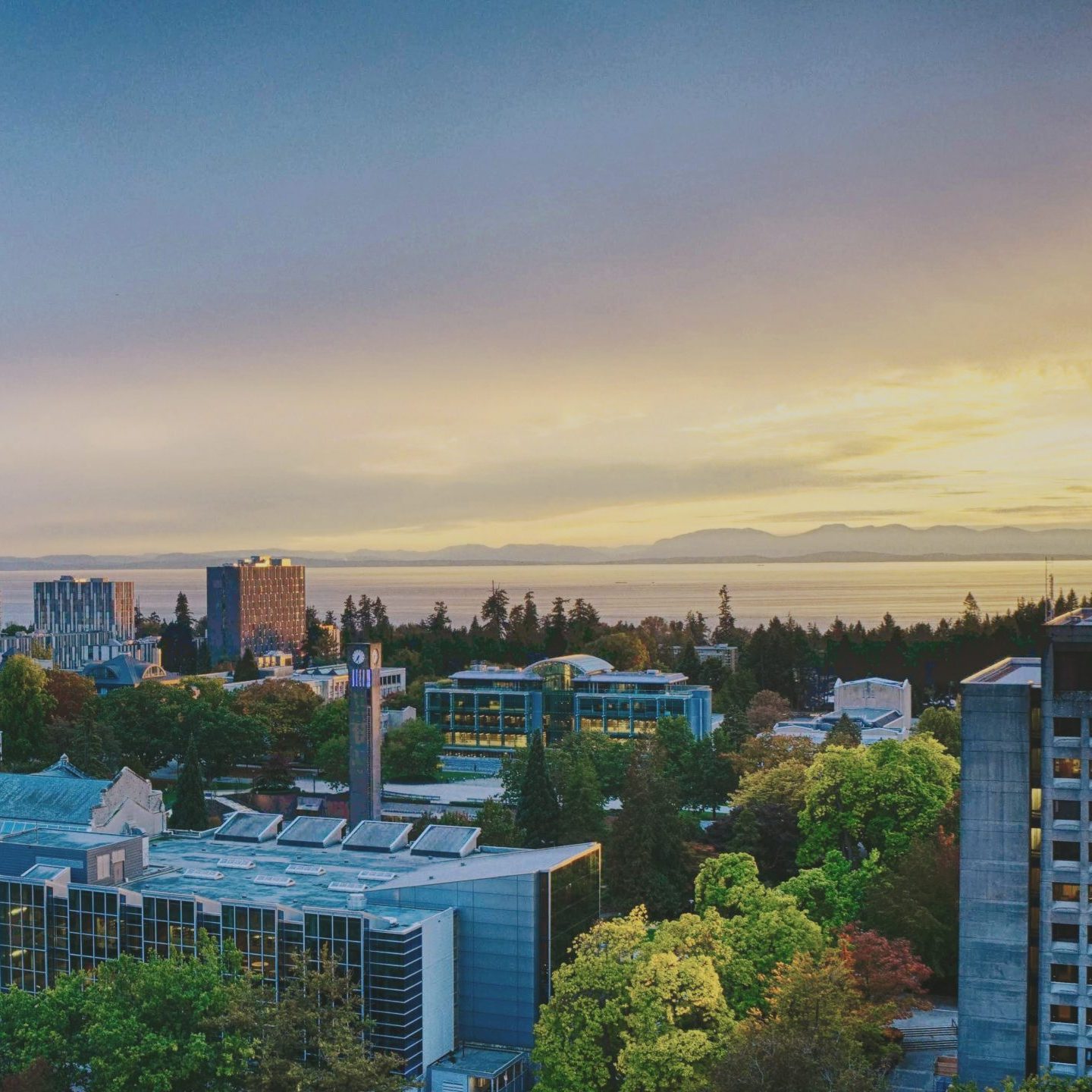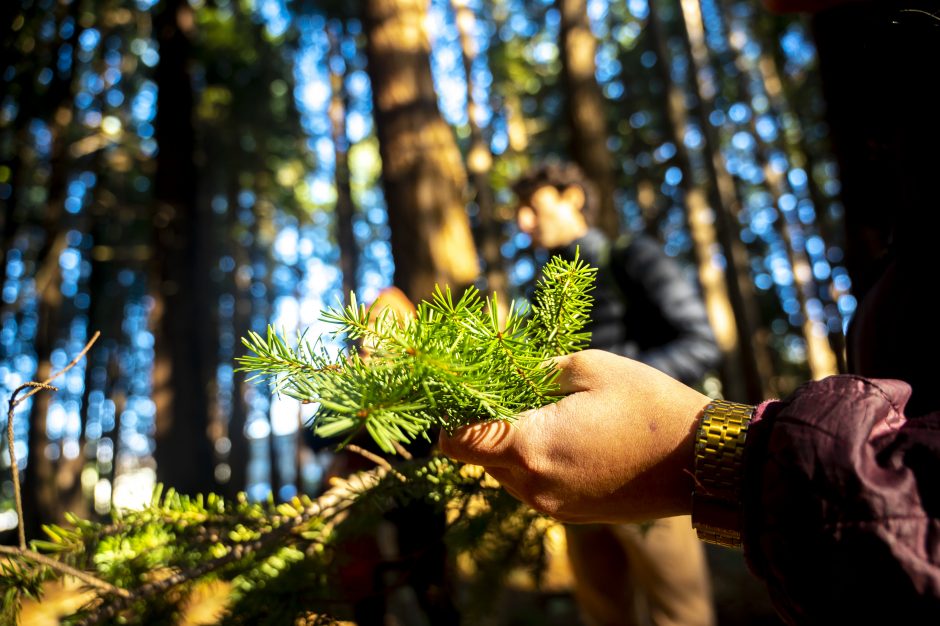
UBC understands that the actions we take today will affect human and environmental wellbeing for generations to come.
The stories below provide a window into the broad range of climate emergency-related activities underway by UBC academic units, operational departments, community initiatives, and student groups. UBC invites you to explore what’s happening, and join us in this vital work.
Featured Stories
Climate Emergency Fund Recipients Share Back

Sustainability Ambassadors Program
Join us in this interview with Jack Suchodolski and Kshamta Hunter to learn more about the Sustainability Ambassador’s Program, how the Climate Emergency Fund (CEF) has helped the program grow, and hear advice from Jack on getting involved in sustainability leadership.

Climate Justice UBC
Join us in this Q and A with Michelle Xie and Yasmina Seifeddine from CJUBC, as they discuss CJUBC’s demands for UBC to follow up on their fossil fuel divestment commitments, how the Climate Emergency Fund (CEF) has supported CJUBC’s work and values, and the deeper message behind the recent release of the CJUBC CEF Grant Report.
All Stories
New toolkit helps tackle climate anxiety
May 11, 2022
UBC spin-off companies win $2 million in competition for carbon removal technology funded by the Musk Foundation
Apr 22, 2022
Ripples of Transformation – Reflecting on pathways for sustainability and climate justice
Apr 06, 2022
The growing climate emergency has prompted us to reflect on our understanding and approach to living sustainably within the limits of our planet. What are the stories of transformation that will support the creation of new (and re-newed) pathways for sustainability and climate justice?
How much are taxpayers really subsidizing Canada’s fossil fuel industry?
Mar 14, 2022
This CBC News article features climate justice issues highlighted by Temitope Onifade, International Doctoral Fellow, a Liu Scholar and a Vanier Scholar at UBC.
Issues include the disproportionate negative impacts of fossil fuel production on low-income, fossil fuel-dependent and Indigenous communities.
But how much funding are taxpayers actually giving the fossil fuel industry in different parts of the country? What's it used for? And what impact does it actually have?
Reflections on Climate Emergency Week 2022
Mar 11, 2022
In the spirit of community-building and #UBCClimateLove, the Sustainability Hub, Climate Hub, and AMS hosted UBC’s first Climate Emergency Week featuring conversations, actions, and celebrations. These events coincided with AMS Sustainability Week, February’s Move UBC campaign, and Black History Month. Events throughout the week were made possible thanks to funding from the Pacific Institute for Climate Solutions (PICS) and the UBC Wellbeing Strategic Initiatives Fund.
IPCC report: Half the world is facing water scarcity, floods and dirty water — large investments are needed for effective solutions
Mar 01, 2022
As a researcher in the field of climate change and sustainable food systems, Balsher Singh Sidhu, Postdoctoral Research Fellow in Resources, Environment and Sustainability, was part of a team that reviewed more than 1,800 case studies for the “Water” chapter of Climate Change 2022: Impacts, Adaptation and Vulnerability, the second part of the Intergovernmental Panel of Climate Change’s Sixth Assessment Report (AR6).
This newly released report is the most comprehensive review of climate impacts and how much we can adapt to them since 2014.
Santa Ono: At the University of British Columbia, we are committed to doing our part to address the climate crisis
Jan 13, 2022
Our province is still reeling from an unprecedented and deadly heat wave fuelled by climate change. Tragically, hundreds of people died from heat-related illnesses across the province, and the town of Lytton burned to the ground.
This op-ed article by UBC President and Vice-Chancellor Santa J. Ono and originally appeared in the Georgia Straight on Jan 12, 2022.
Why carbon capture and storage is key to avoiding the worst effects of the climate emergency
Dec 16, 2021
Dr. Naoko Ellis, a professor of chemical and biological engineering at UBC's faculty of applied science, discussed carbon capture, utilization and sequestration technology.
This article by Naoko Ellis, Professor in Chemical Engineering, University of British Columbia, originally appeared in The Conversation on December 15, 2021.
Lowering emissions, plant-based diets needed to prevent farmed seafood declines
A new UBC modelling study suggests that the supply of farmed seafood such as salmon and mussels may drop 16 per cent globally by 2090 if no action is taken to mitigate climate change. Study authors Dr. Muhammed Oyinlola and Dr. William Cheung at the Institute for the Oceans and Fisheries were quoted.
This article by Bronwyn Beairsto, originally appeared in the Vancouver is Awesome on December 13, 2021.
UBC Commits to Net Zero Emissions by 2035
Dec 08, 2021
The University of British Columbia has unveiled a bold new climate action plan to accelerate emissions reductions and achieve net-zero emissions by 2035 at its Vancouver campus—15 years ahead of the previous target date.
UBC has reduced its greenhouse gas emissions by approximately 30 per cent since 2007. The new plan aims to get to net zero faster through a combination of measures.
Engagement and outreach activities to the UBC community will accelerate next year to support the changes needed to reach CAP 2030 goals – particularly those involving emissions from business air travel, commuting, food and waste.
